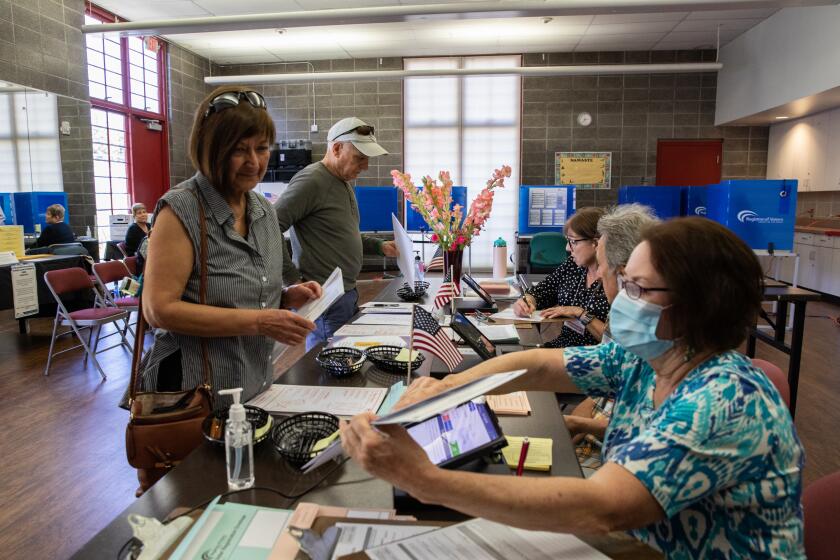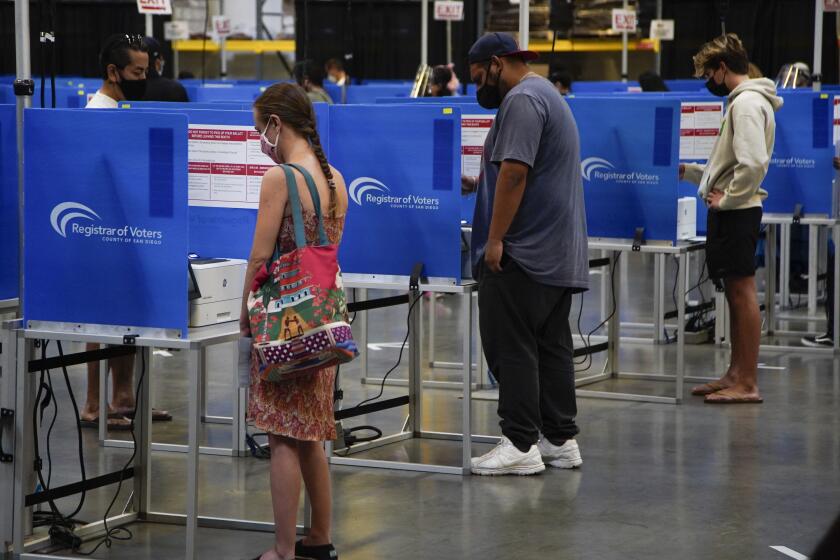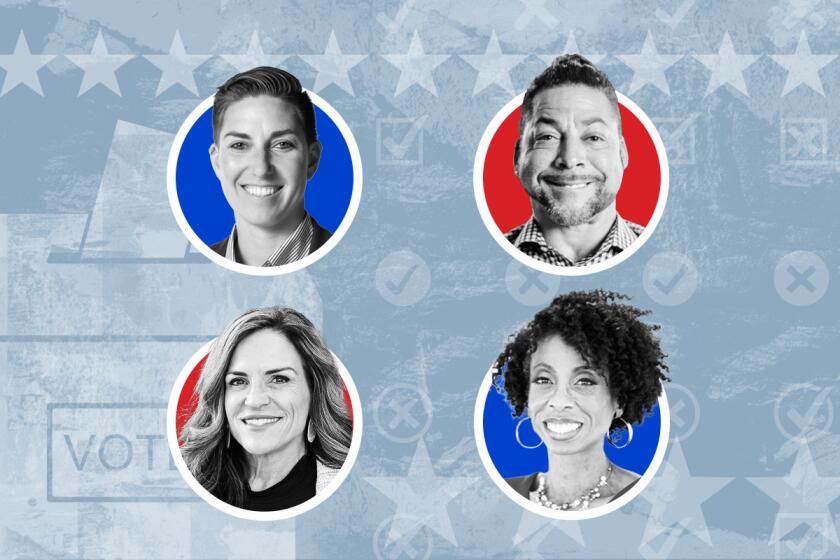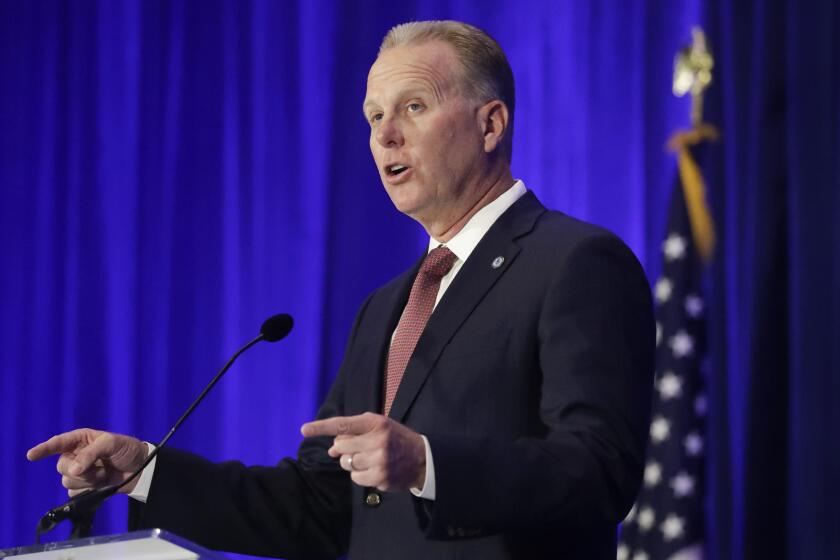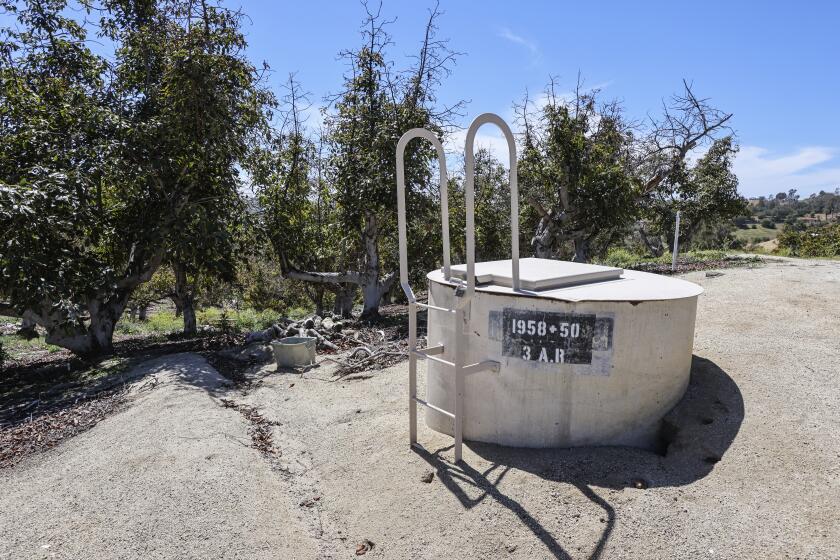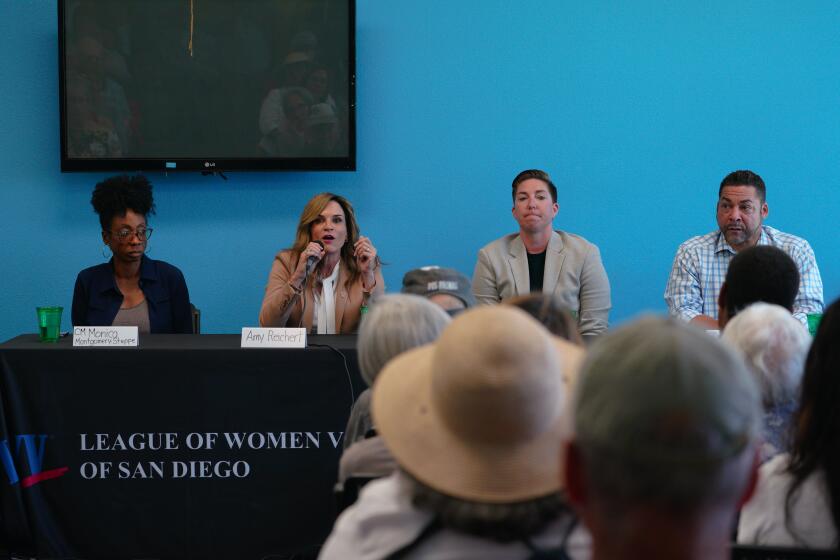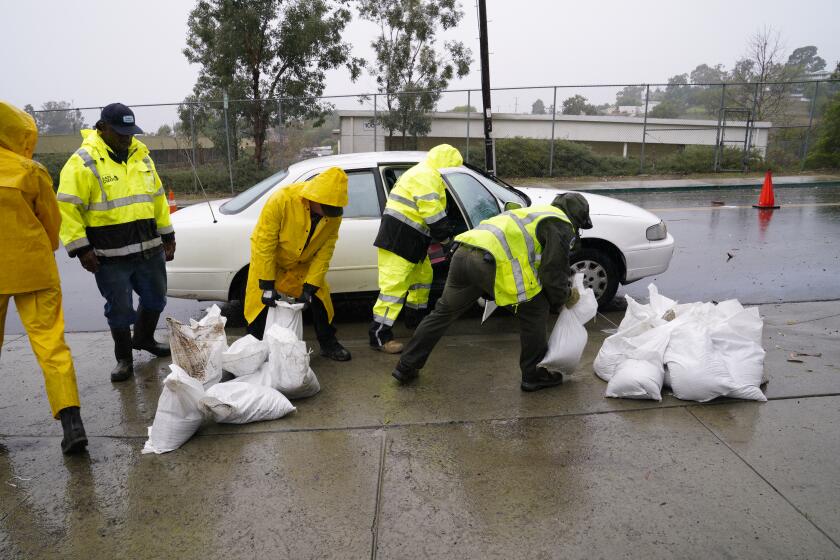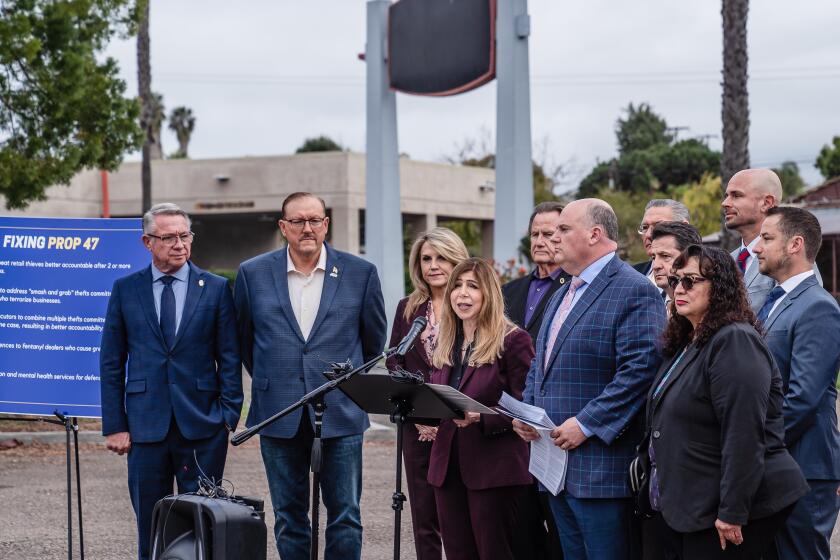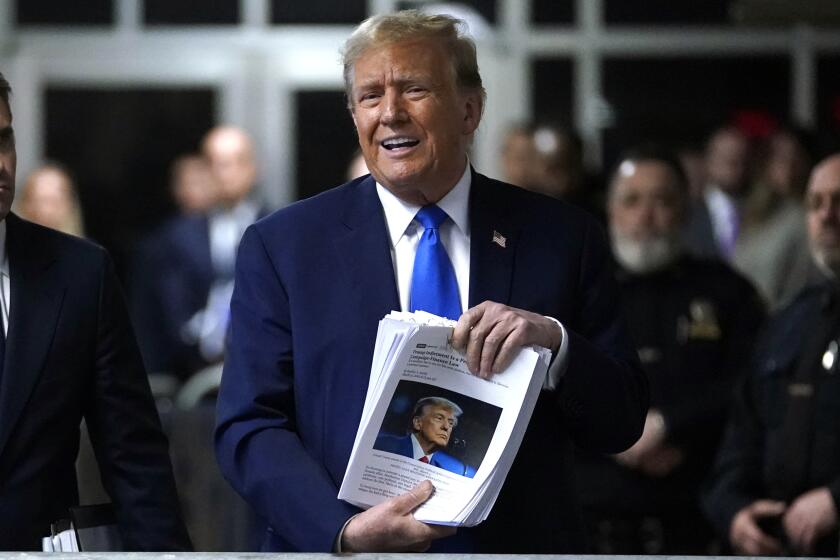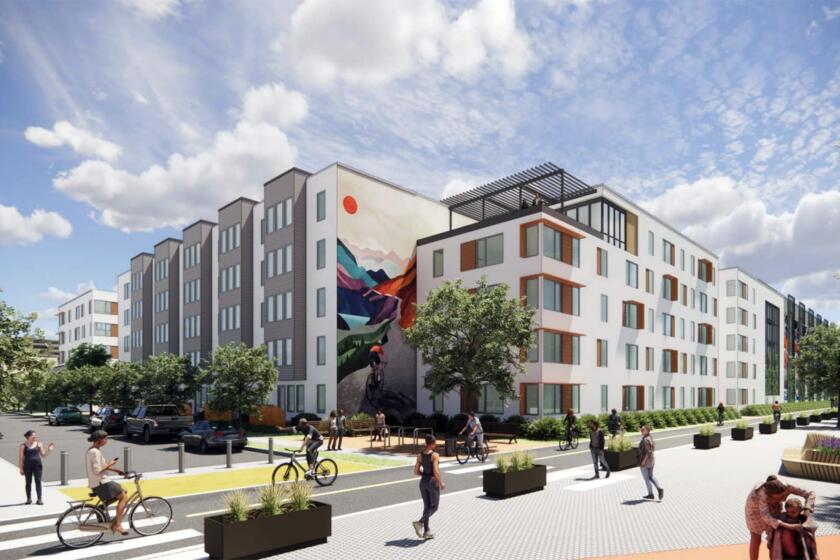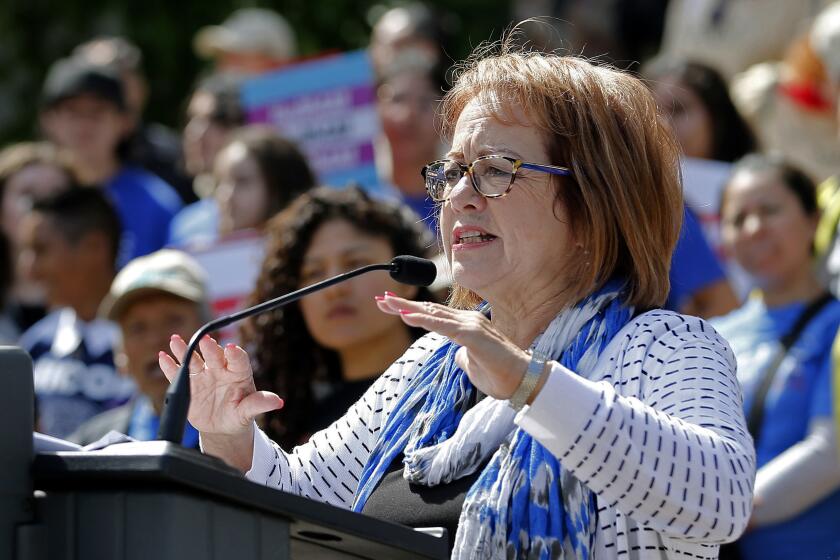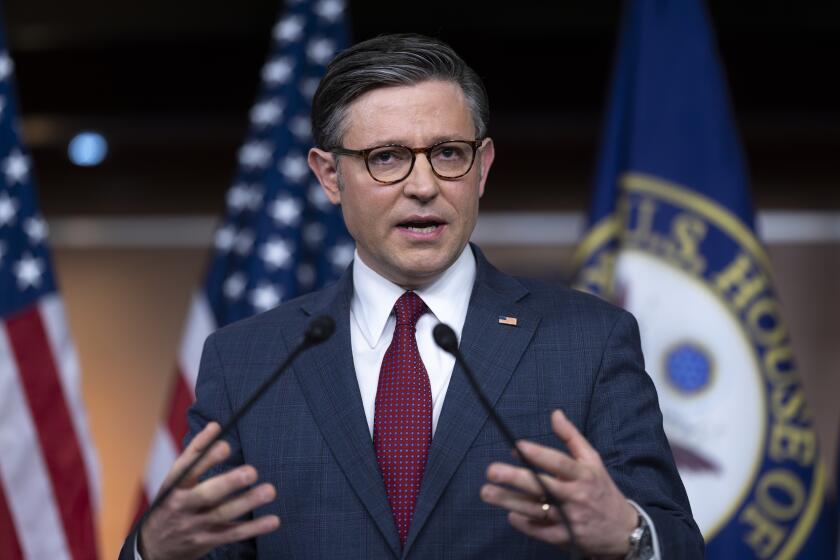Four San Diegans, including two Democrats, vie to become CA’s governor
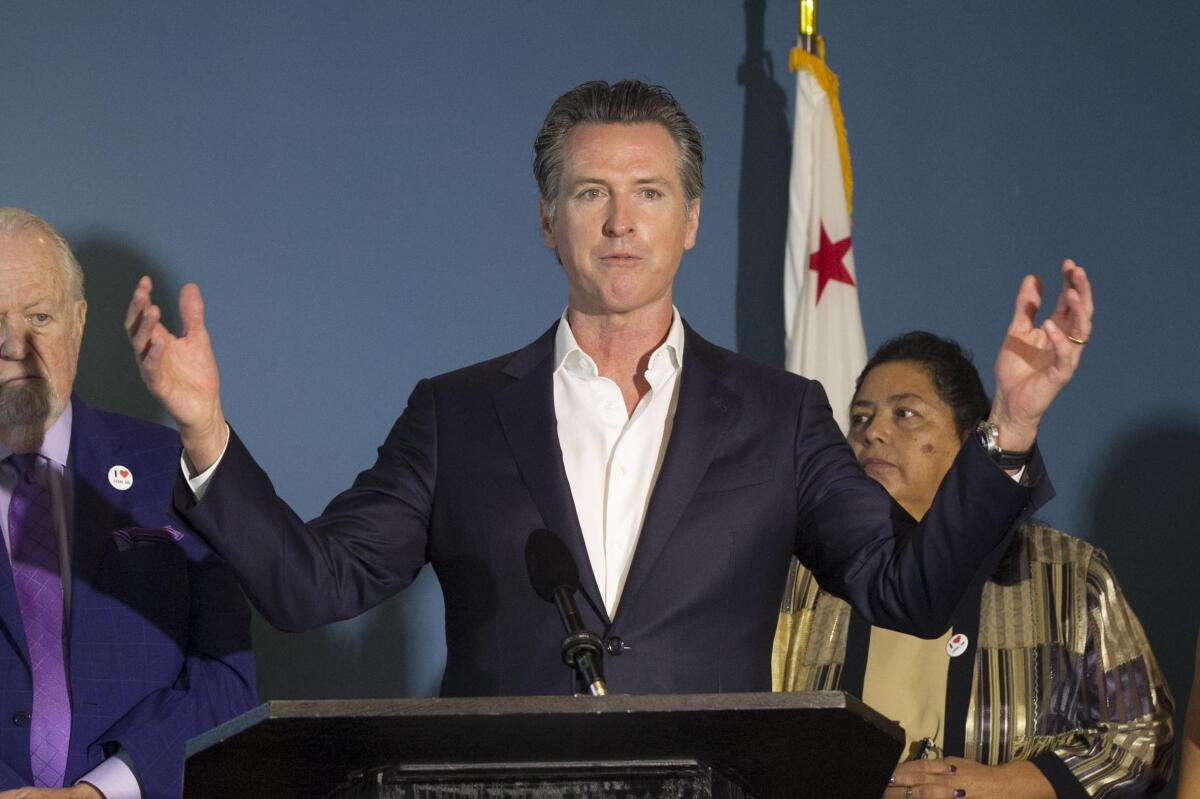
Two prominent San Diego Republicans, two Democratic unknowns join 42 other contenders to replace Newsom should recall succeed
Among the 46 candidates hoping to be governor if the September recall of Gov. Gavin Newsom succeeds are four San Diegans, including well known Republicans Kevin Faulconer and John Cox and two Democrat newcomers, attorneys Brandon Ross and Daniel Watts.
California voters will decide Sept. 14 whether to remove Newsom from office. If more than 50 percent approve the recall, the candidate with the highest total vote wins, even if that person falls short of a majority.
Faulconer, the former mayor of San Diego, announced his candidacy in the spring, hoping to employ the recall as a springboard to higher office in a predominantly blue state. Rancho Santa Fe businessman John Cox lost the 2018 general election to Newsom but is angling for a rematch through the recall process.
Among the lesser known local candidates, Ross is a lawyer and medical doctor in Eastlake who said he joined the race as a backstop for California Democrats in case the recall effort succeeds.
“I hope that the governor doesn’t get recalled,” he said. “But if he does, I hope there is a Democrat who can take over.”
North County Civil attorney Daniel Watts said he is using his candidacy to call attention to free speech and higher education issues.
“What I’m trying to do is advocate for two things that I think are important, trying to get some other people on board too, and getting a lot of votes would be a good way to do it,” he said.
Two other San Diegans declared themselves candidates but didn’t make the list last week.
Fashion blogger Sonya Berg and Frederic Schultz, an attorney and activist, both filed candidate papers with the Secretary of State’s office. Both were rejected for submitting too few signatures to qualify. Schultz unsuccessfully challenged the decision in court last week.
The election represents a chance for Republicans to capture the governor’s office in a state where Democrats have a 2-to-1 advantage. As of February, 10.2 million California voters were registered as Democrats and 5.3 million were Republicans, according to the California Secretary of State.
Voters citing no party preference nearly match Republicans, at 5.2 million, leaving Republicans hopeful of swaying disaffected independents and Democrats their way.
Here is an update on the San Diego-based candidates and their campaigns.
John Cox
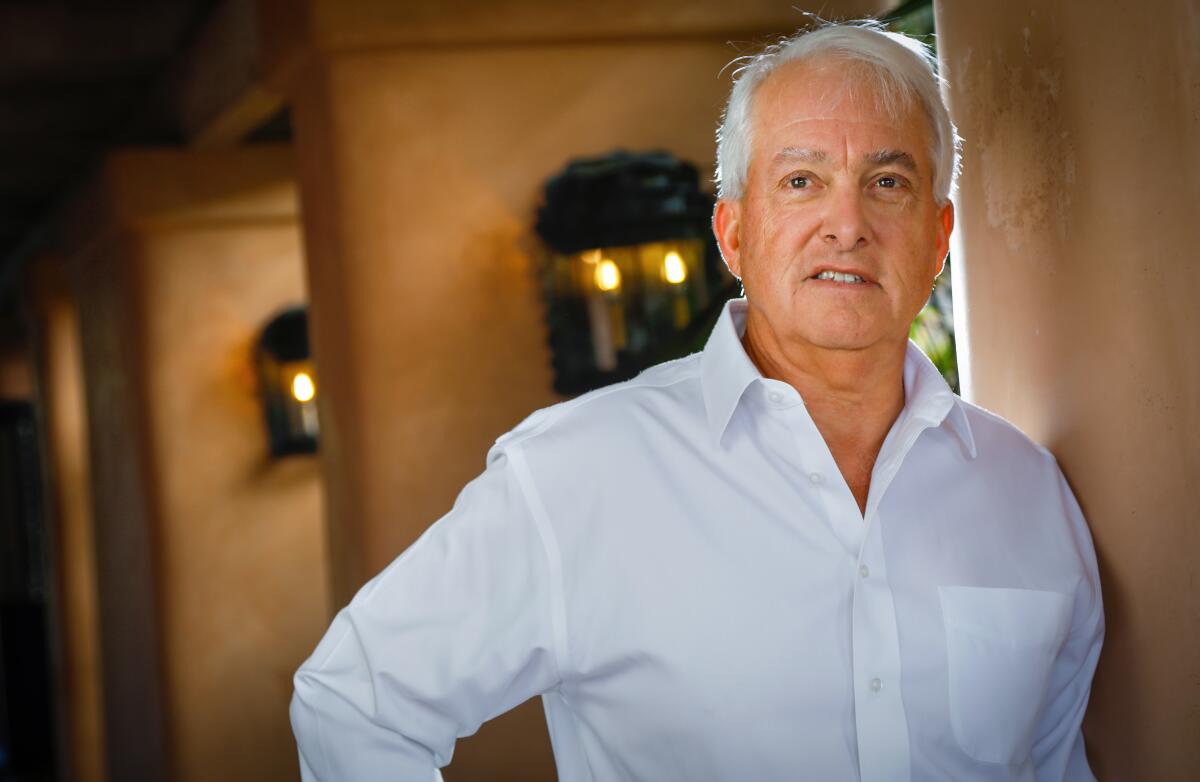
Cox, 66, is a businessman and certified public accountant who rose to prominence with his 2018 bid for governor, pitting himself as a common-sense conservative against the decidedly liberal Newsom.
Cox lost 38.1 percent to Newsom’s 61.9 percent. He said last week he believes voters will reconsider after a year of global pandemic, record wildfires and rising homelessness.
“Voters are ready for change and check on one Party rule,” he wrote in an e-mail to the San Diego Union Tribune. “Bringing common sense and accountability to the California government will be rewarded at the ballot box.”
His campaign priorities, he said, are “slashing taxes, eliminating homelessness, reducing the cost of housing, increasing public safety, managing wildfires, reopening our economy and schools, and put power back in the hands of Californians.”
This will be his sixth attempt at office. The former Chicagoan previously ran unsuccessfully for the House of Representatives (2000), the U.S. Senate (2002), the Cook County Recorder of Deeds (2004) and the presidency (2008).
Throughout his years as a political aspirant, Cox has encountered his share of controversy. His recent campaign was sued by animal rights advocates for traveling with a live grizzly bear as a mascot.
During his earlier gubernatorial run, he raised eyebrows with comments comparing the wait in the Department of Motor Vehicles to Holocaust concentration camps and for his proposal to add thousands more local representatives to California’s Legislature.
Despite his losses, he rates his lack of a political track record as a plus.
“As an outsider and a CPA, voters know I’ll shake things up, slash taxes and make their tax dollars go further,” he said.
According to the Secretary of State, his campaign John Cox for Governor 2021 Inc. has raised almost $5.3 million in contributions. In separate accounts, looking past the recall, his exploratory committee for the 2022 election brought in just over $1 million, and John Cox for Governor 2022 Inc. has raised $1.6 million.
Kevin Faulconer
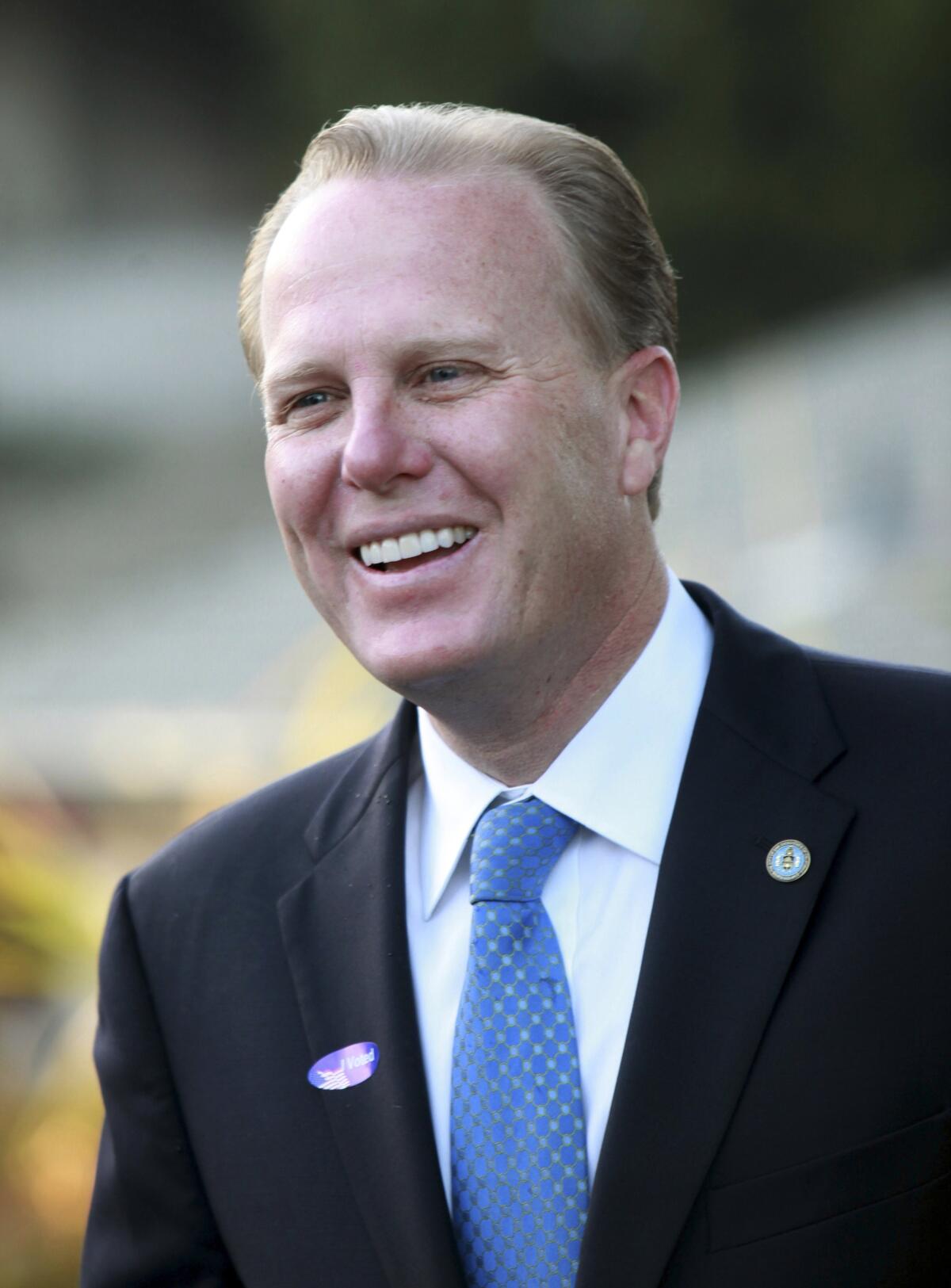
While Cox is perceived by some as a quixotic outsider in the race, Faulconer seeks the image of a seasoned politician.
He served on San Diego’s City Council for eight years, starting in 2006, before winning a special election as mayor in 2014 and then re-election in 2016. Since being termed out of office last year, he has served as a visiting professor at Pepperdine University.
As a former Republican mayor in what he calls a “deep blue city,” Faulconer said his collaborative approach to governance has prepared him to unite Californians.
“Just as I built a coalition to win in San Diego, a city where political party registration mirrors that of the state as a whole, I will do the same leading with common sense from Sacramento to tackle the very serious problems our state faces,” he wrote in an email to The San Diego Union Tribune.
Faulconer, 54, said he earned accolades as mayor for his handling of homelessness and for his coordination with county authorities on pandemic response, which left San Diego with fewer COVID-19 deaths than in many other big cities.
Critics faulted him, however, for responding slowly to a Hepatitis A outbreak that killed 20 and sickened 600 people, including many homeless. He also was criticized, most recently by the city auditor, for some controversial city real estate deals, including the Ash Street high rise lease-purchase, which cost the city tens of millions of dollars without giving the city usable leasing space.
In his campaign, Faulconer faults Newsom for the state’s lingering homeless crisis and year-long school closures. Faulconer has vowed to clean up California while trimming taxes if elected.
“I will take immediate action to clean our sidewalks, end open-air drug markets, reopen our schools full time, put our state on a war footing to fight wildfires and work to make our state more affordable for everyone with the largest middle-class tax cut in our state’s history,” Faulconer wrote.
According to the Secretary of State, Faulconer for Governor 2021 has raised $924,899 in contributions, while an exploratory committee and campaign for the 2022 governor’s election have accrued $1.1 million and $1 million respectively.
Brandon Ross
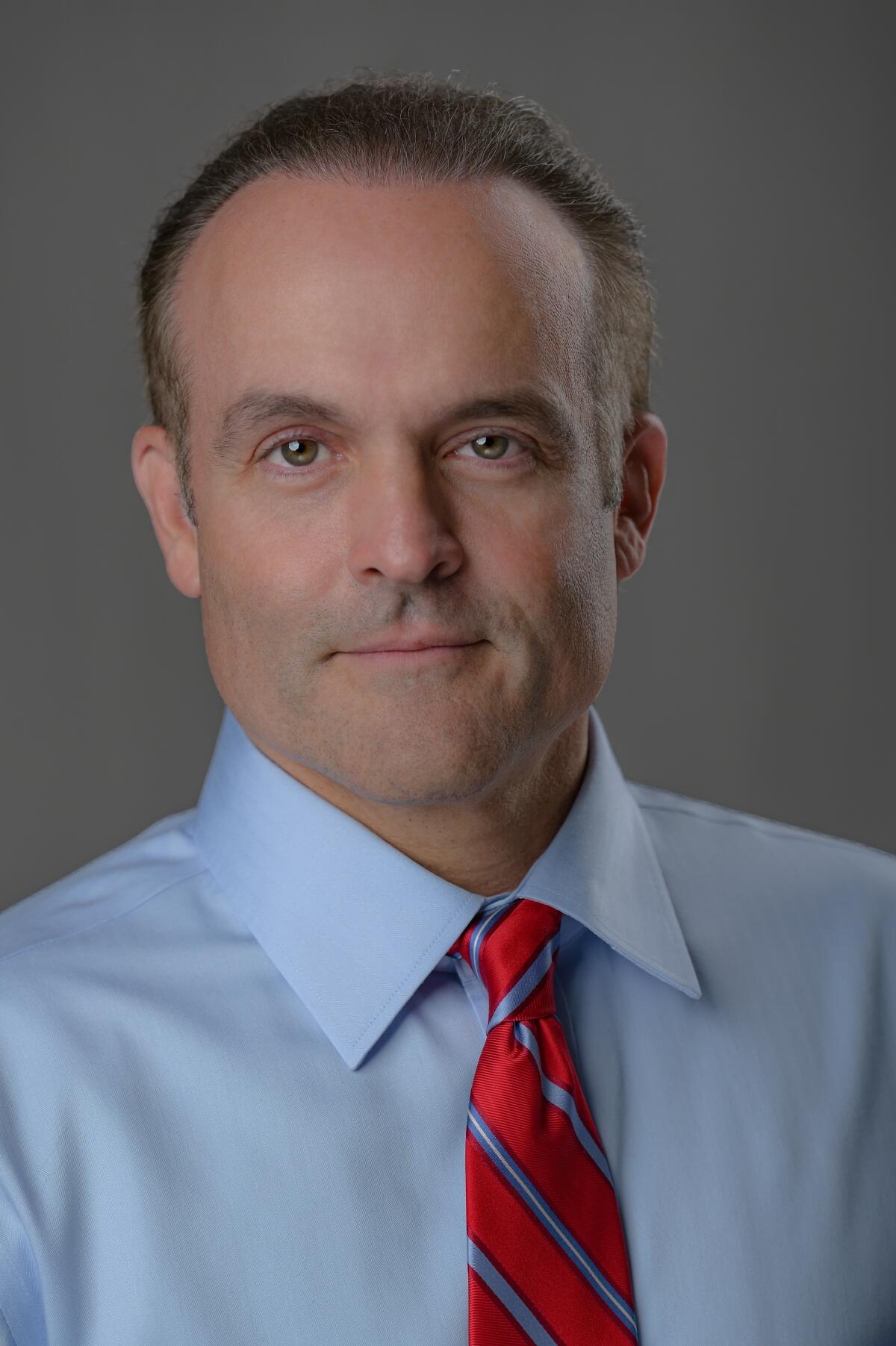
An attorney and physician, Ross, 48, said he stepped in to play defense for the Democratic party in a recall election he opposes.
“I don’t even really think that there should be a recall election,” Ross said. “I saw a bunch of Republicans running for the seat and no Democrats. And I’m a Democrat. I thought if the recall is successful, there should be a viable Democrat running on the ballot. And I have the right background. Especially now with COVID, it helps to have a medical doctor on the ballot.”
Despite his party loyalty, Ross acknowledged that he has never before waded into politics. Watching the country become more bitterly divided under former President Donald Trump prodded him to action, he said.
“That’s really why I got into politics at all,” Ross said. “I saw the direction of the country under Trump and thought, ‘Oh, this is terrible.’”
Ross has had his own personal struggles. He said he holds degrees in law, medicine, public health and business, but he also struggled with addiction after becoming hooked on narcotics following a back injury.
According to reports by NBC 7, the state medical board revoked his license but later reinstated it, placing him on probation.
Ross said he is now sober and places a priority on tackling the opioid crisis in California. He hopes it doesn’t come to that, however.
The Secretary of State lists no campaign donations for Ross. That’s because he hasn’t raised any, he said, adding that he plans to campaign through social media, debates and press coverage.
Daniel Watts
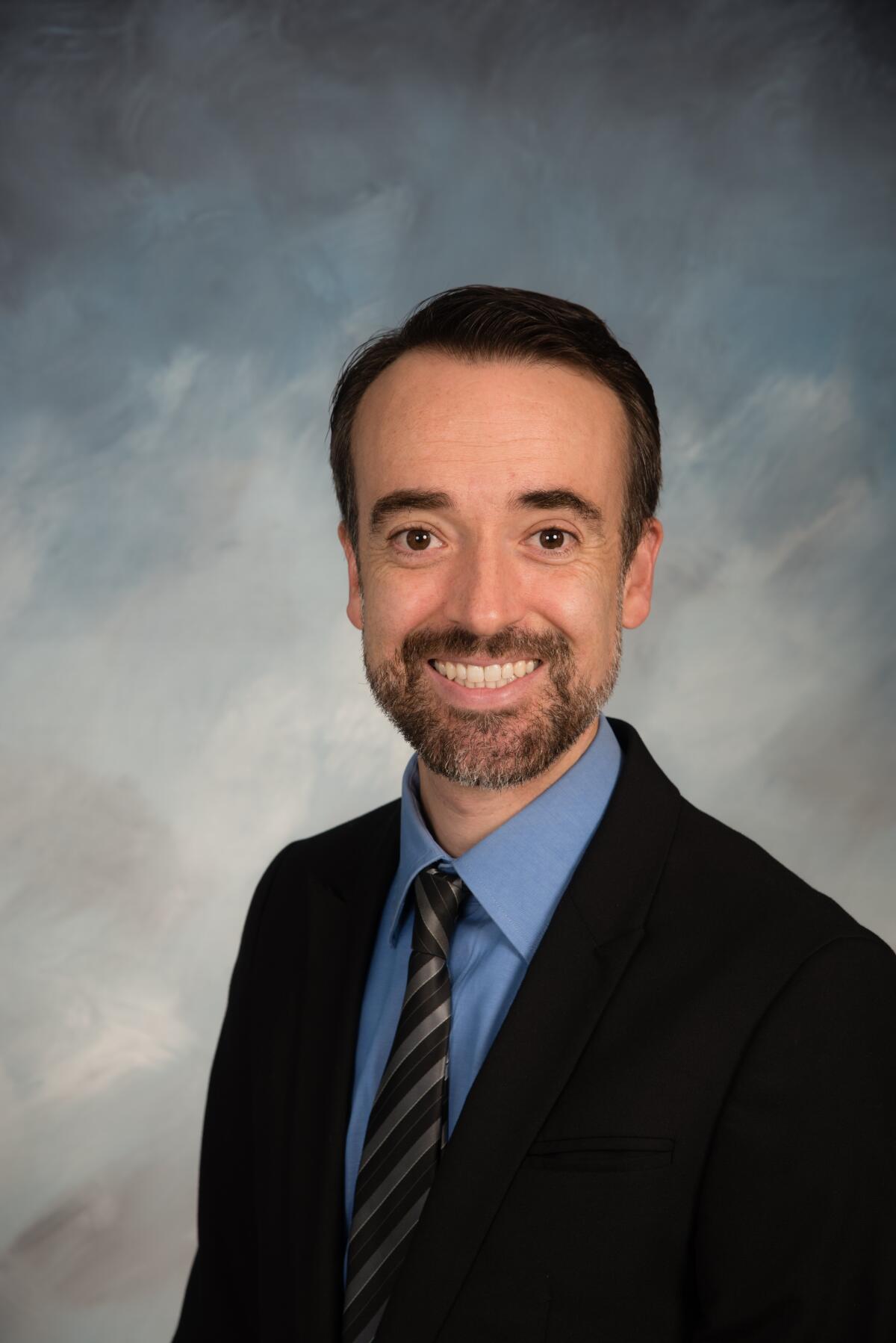
The 2021 recall election isn’t Watts’ first foray into politics. The North County attorney entered the 2003 recall election of former Gov. Gray Davis, running as a Green Party candidate on a higher education platform.
Watts, 38, is an associate attorney at Galuppo Law in Carlsbad, where he handles civil rights and business disputes, employment law and landlord-tenant issues.
He said he is a longtime advocate for free speech and free college tuition and is reprising his rallying cry for those goals.
“I was a 20-year-old college student and ran on the platform of lower college fees,” in 2003, he said. “My goal was to get the major candidates to address rising college fees. They have only skyrocketed since then. I’m running this year for the same reason.”
Watts expects the recall to fail, but he thinks it does offer ample opportunity to get his word out.
“I’ll show up to any debate I’m invited to, take the call of any newspaper that wants to interview me,” he said. “I’ll appear on any talk show that wants to talk to me. Also, the sample ballot will be sent out to every household in California, with my very succinct statement on free college and free speech.”
Like Ross, Watts listed no donations with the Secretary of State’s office. He said he doesn’t plan to raise or accept any contributions.
Get Essential San Diego, weekday mornings
Get top headlines from the Union-Tribune in your inbox weekday mornings, including top news, local, sports, business, entertainment and opinion.
You may occasionally receive promotional content from the San Diego Union-Tribune.

